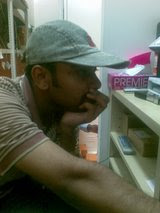Radical pedagogists, such as Paulo Freire, Neil Postman, bell hooks, and Henry Giroux, challenge the conventional concepts of a classroom teacher and pedagogy vis-à-vis schooling and larger political-economic systems. They argue that teachers must fight the rigidity and conformity of schools and create genuine spaces for learners to explore and develop their diverse capacities and talents. Teachers should also use their teaching power to question and subvert oppressive and exploitative institutions, policies and relationships in society. Giroux describes his vision of progressive teachers as those who "are also concerned in their teaching with linking empowerment — the ability to think and act critically — to the concept of social transformation. That is, teaching for social transformation means educating students to take risks and to struggle within ongoing relations of power in order to be able to alter the ground in which life is lived . Acting as ‘transformative intellectuals’ means helping the students to acquire critical knowledge about the societal structures, such as economy, the state, the workplace, the mass culture, so that such institutions can be open to potential transformation."
However, Postman describes, "The trouble is that most teachers have the idea that they are in some other sort of business. Some believe, for example, that they are in the ‘information dissemination’ business." Others see their only duty as creating clever bureaucrats or preparing consumers to further corporate agendas. Many don’t have a vision of what they are doing — their primary pre-occupation is on their salary. The few who do realize the irrelevance and inherent damage of schooling feel powerless to change the System.
Teachers must start to recognize the power they have within their classrooms. Rather than simply making student memorize the syllabus, they can critically question along with their students "what is being taught and why?"; "who has decided that this should be taught and what legitimacy do they have?"; "how does this relate to local realities?"; and, "what other perspectives exist?" Teachers can also demystify the ‘sacred Truth’ of textbooks, I.Q., classroom discipline, teacher-student dichotomy, competitive examinations and degrees, as essential elements of the learning process. A ‘subversive’ classroom can be identified by the frequency with which students ask meaningful questions, their search for and tolerance of diverse answers, and their challenges to assertions made by other students, teachers or textbooks.
Teachers can also create new spaces of power by inviting others into authentic discussions on education i.e. "what are the problems faced by communities"; "what should be learned by youth today?"; and "how does schooling support global exploitation?". Giroux describes that teachers "will have to open every aspect of formal education to active, popular contestation and to...community members, parents, support staff, youth advocacy groups, and others with vital interest in the schools." Teachers can also involve the students into exploring community issues as well as other spaces of learning in the community. Both above processes require that teachers stop seeing themselves as the ‘great experts’ and communities as ‘illiterate’ or ‘backward’. Postman suggests that as teachers redefine themselves and their roles, "great strides can be made if the words ‘teach’ and ‘teaching’ are simply subtracted from the operational lexicon."
Tuesday, March 3, 2009
Subscribe to:
Post Comments (Atom)



No comments:
Post a Comment